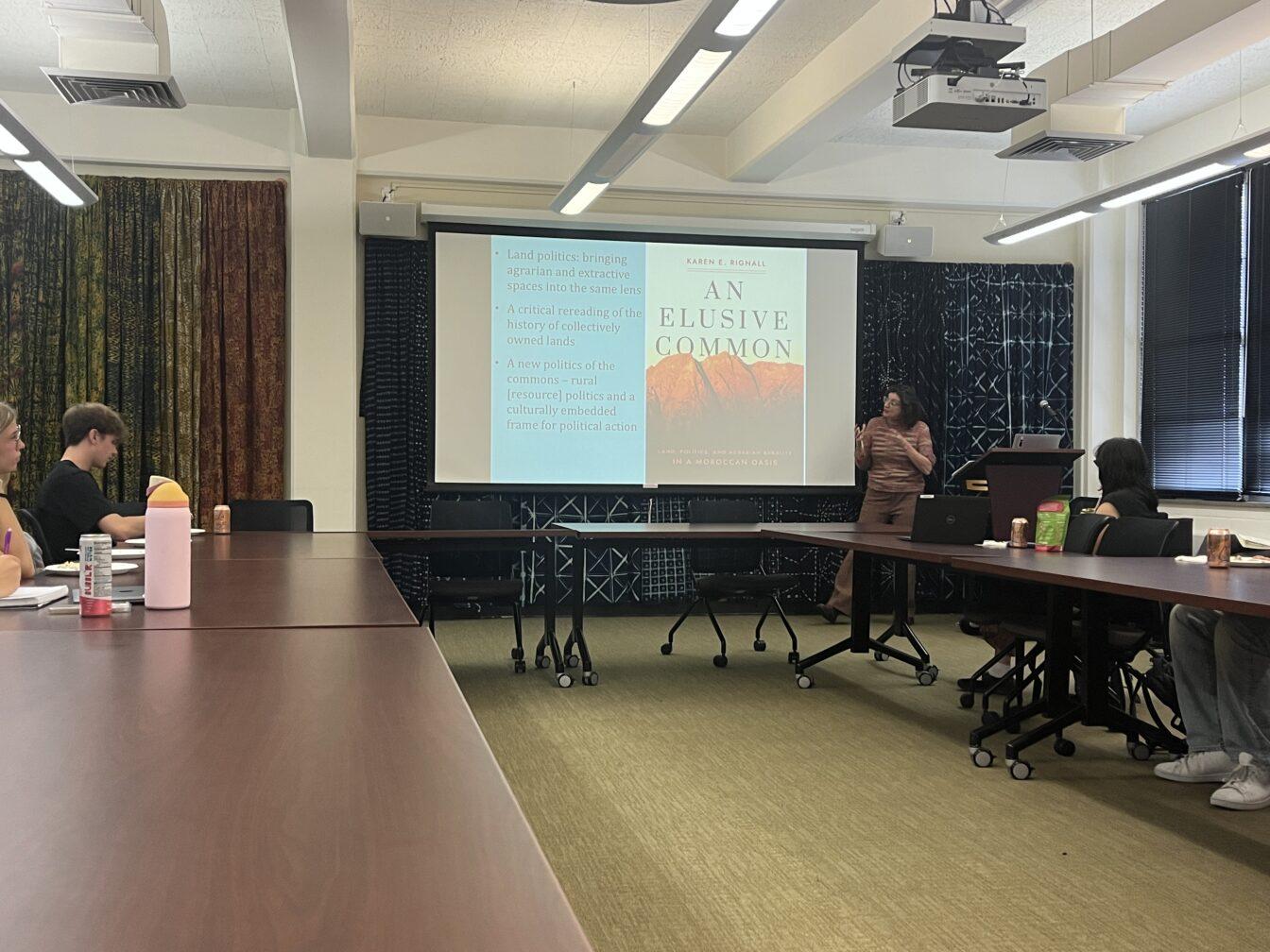University of Kentucky cultural anthropologist and associate professor Karen Rignall lectured on the “Afterlives of Extraction in Morocco’s Renewable Energy Transition” Sept. 18. Rignall spoke about renewable energy, mining and extraction in Morocco and the energy justice response of local residents. To an extent, Rignall said this talk is an extension of the topics in her book “An Elusive Common: Land, Politics, and Agrarian Rurality in a Moroccan Oasis.”
Rignall said comparison between renewable energy and extraction isn’t a new idea. Neither is the finding of similarities in the social dynamics of Midelt and Bleida, Morocco.
“Marginalized people, perhaps, have always been told to sacrifice themselves for the energy consumption of the wealthy,” Rignall said.
ChatGPT masquerades as AI but is something much different, researcher says
The sacrifices of people from these areas in Morocco affected by extraction and solar energy facilities include changes in collectively owned land use and access, seeing little of any capital gains or hirings and high levels of water consumption and pollution, Rignall said.
Rignall said townspeople protest in some circumstances. For example, civilians protested the solar energy installation of one Moroccan family. Their concerns were about how the facility will affect land use and water supply. But, it’s not every case that people from the extraction and solar power-affected Morocco towns organize by protesting vocally, said Rignall.
“Often it doesn’t look like they’re fighting an environmental justice fight,” Rignall said.
Instead, townspeople may use language like tradition and customary law. Some political movements in southeast Morocco are environmental justice movements maybe not in name but in goals, Rignall said.
In other cases, people in towns like Bleida have learned to live with the mine there because they fear what will happen if it were to become inactive — it offers a lifeline for the townspeople there, Rignall said.
UW professor presents research on fate of aquatic pesticides in lakes
With Rignall and her partners’ research, they hope to democratize knowledge. They interview and bring in local stakeholders to support conflict resolution and develop a social dialogue, Rignall said.
Essentially, Rignall’s research group is creating a “know your rights” movement and developing a collection of resources, instruments and analyses that will be available to the townspeople.
Rignall said asking the right questions, like why the townspeople need to sell their land to the corporate contractors or why they can be in a benefitted agreement when they are also sovereigns shifts the debate of the kinds of claims the townspeople can make.
The Middle East Studies Program invites a variety of public speakers to speak on climate change-related research topics for its Fall 2023 lecture series. The next three lectures are Oct. 16, Oct. 30 and Nov. 6, which are all open to the public.


















